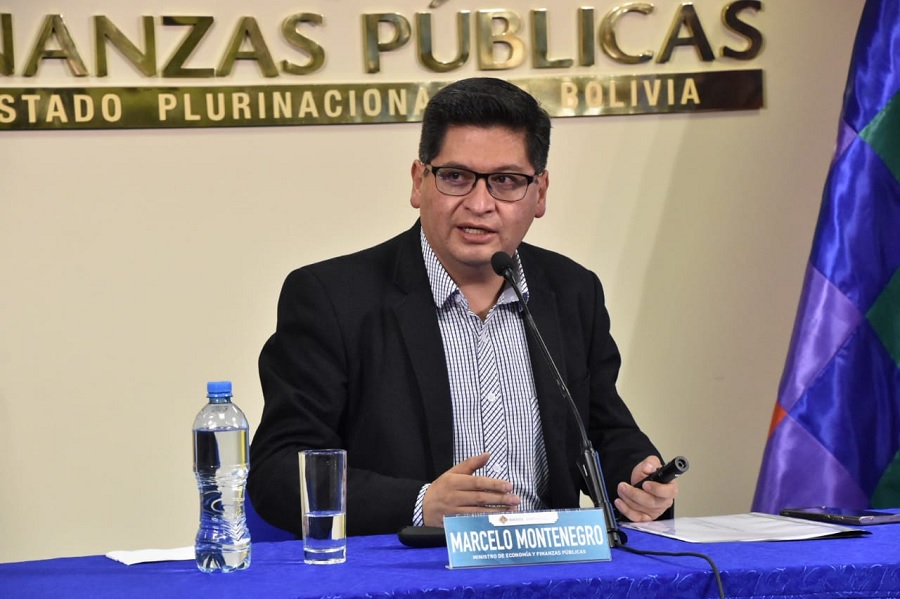RIO DE JANEIRO, BRAZIL – The government used figures to support the economic advances that place Bolivia third in economic growth in the region, the creation of around 1 million jobs, inflation of 0.9% – the lowest in the region-, the creation of new companies, trade surplus, poverty reduction and others as a consequence of the implementation of an economic model that is showing good results.
Minister of Economy Marcelo Montenegro said that the political opposition tries to discredit the government’s achievements with the argument that they are a combination of factors such as “luck,” “rebound effect,” “false,” and “made-up.”

“Now, many analysts and critics say ‘they are false figures, they are made-up figures,’ so let them present their figures, let them calculate GDP, let them calculate unemployment, let them calculate inflation, let them demonstrate and tell us: ‘these are the true figures’; to prove that something is wrong, each one should make their own calculation,” he said.
He highlighted each of the economic measures implemented by the government to boost demand and supply, to return to the path of political stability and economic growth, and to reverse the recession that reached historic levels during the de facto regime.
One of the first measures taken was the payment of the “Bono Contra el Hambre” (Hunger Bonus), which ended with an injection of Bs 4.035 billion (US$586 million) to the national market and benefited Bs 4.035,773. Likewise, through the Value Added Tax Cash Refund System (Re-IVA), over Bs 30 million was returned to more than 50,000 taxpayers.
Law 1355, of December 2020, provides for a 5% VAT refund for people earning less than Bs 9,000, whether they are employees or self-employed. Another factor was the refund of Pension Fund Administrators (AFPs) contributions, which allowed 313,220 people to offset their needs with Bs 1.070 billion.
In addition, the Public Investment Reactivation Support Trust (FARIP) was launched, benefiting 29 municipalities and 4 state governments, with a disbursement of Bs 708 million. It was created so that subnational governments could use these resources as counterpart of works paralyzed by the de facto government.
The Trust Fund for the Reactivation and Development of National Industry (FIREDIN) was created for Import Substitution (SIBOLIVIA), which to date has disbursed Bs 654 million, benefiting 6,035 producers engaged in manufacturing, agriculture, livestock, forestry, fishing and other industries.
It implemented the payment of the 0% Value Added Tax for the import and commercialization of capital goods, industrial plants and heavy machinery, which enabled the import of capital goods for over Bs 938 million.
In addition, state-owned companies such as the Ammonia and Urea Plant (PAU), lithium industrial plants and other strategic companies paralyzed by the de facto regime were reactivated and now began to produce and export their production.
“The year 2021 marked the beginning of the reconstruction of the economy and of economic stability and consolidation under the Productive Social Community Economic model. There is price stability, unemployment dropped, which is a very important variable, more than 1.1 million people have been inserted in the labor market, economic activity is once again generating new income, goods and services, which is what the GDP measures,” the government official pointed out.

